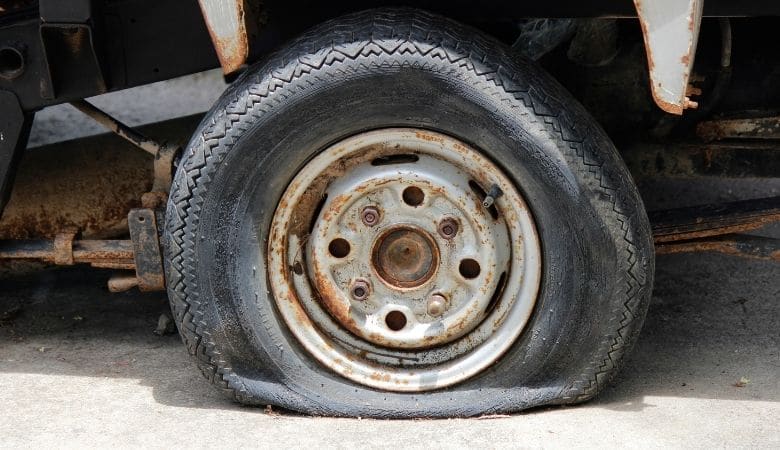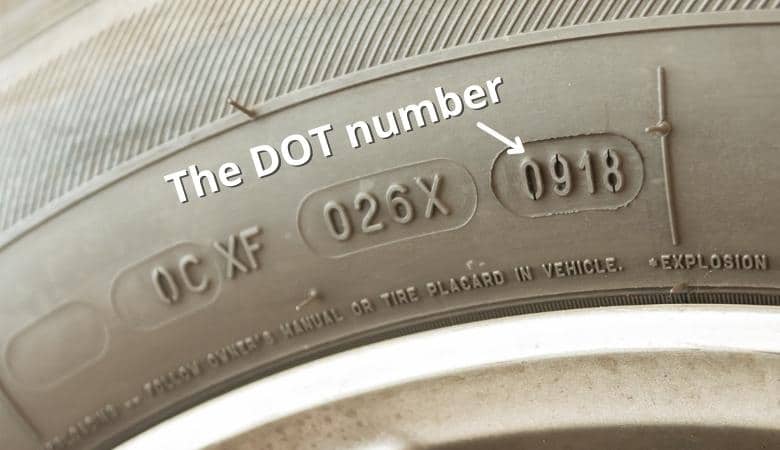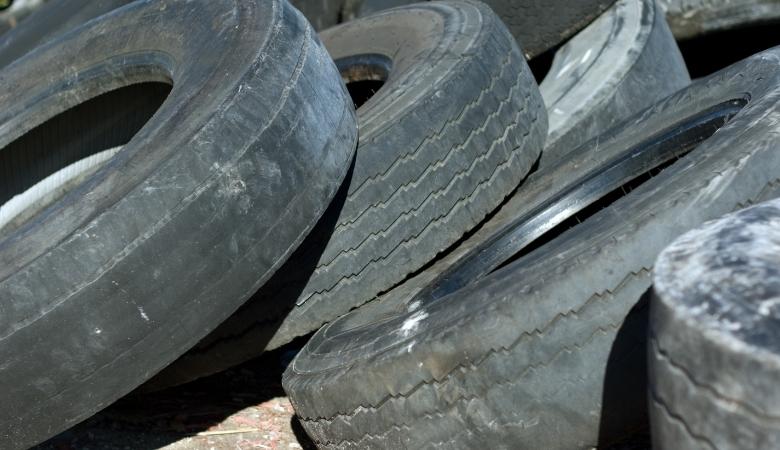An important item on a car that needs regular check is the tires. Car tires are subjected to many issues, such as getting a puncture and wearing out.
Therefore, you might be asking yourself, do car tires get stiff and lose grip with age?
Since car tires are made of rubber, they get hard as they age, just like other rubber materials. You can feel this difference by poking at the tire treads of a new tire and an old one of the same model with your fingernail. When the rubber grows hard, it does not grip the road as well anymore.
Read on to learn more about aging tires and how time affects their performance and grip.
What are the Signs of Aging Tires?
We all understand the risks of using old tires, but how do you tell that a tire is old and needs replacement? Below are signs that indicate it’s time to change your tire.
1. Tread Wear
It is no doubt that worn out tires are risky to use and hamper performance. Although you will notice as your tires get worn out, it is wise to replace them before things get worse. To gauge your tread, try the ordinary used quarter test or penny test.
When a quarter is positioned head down in the tread rows and able to see the president’s head clearly, then the tire is worn out. And this calls for a replacement.
2. Cracks or Bulges
Cracks or bulges may result from a number of issues. For instance, tires that are not designed for use during winter may stiffen in cold environments.
Over time, this will cause some cracks on the sidewall. Bulges may be as a result of air getting between the outer rubber and the lining of the tire. This may not happen daily but can be triggered when one hits a pothole or a curb.
3. Frequent Air Pressure Issues

When temperatures drop, low tire pressure is a common issue. Nevertheless, if you are noticing the issue frequently, it could be as a result of puncture or worse. Though puncture can be fixed easily, prolonged use of underinflated tire can lead to uneven wear.
4. Discomfort and Vibrations
Vibrations are created differently. Though there are times you may experience a rough ride (especially on paved roads), drivers will always feel when something is wrong. However, it does not automatically mean it is the tire. It might be an alignment problem or an issue with the suspension.
Nevertheless, major vibrations may be as a result of damaged tires. Whichever the case, ensure your vehicle and tires are inspected immediately you experience such.
How Long Does a Tire Last?
Tire makers and rubber manufacturers produce materials of different lifespans. There are no specific rules on tire aging.
Many car manufacturers, including Mercedes, Ford and Nissan, advise their customers to replace tires after five years according to the dates of production. This applies to all regardless of tread life.
However, tire manufacturers like Michelin purport that a tire can last for 10 years if you get an annual tire check after the fifth year.
The Rubber Manufacturers Association (RMA) says there is no method to state a date when a tire should expire. This is due to many factors such as storage, under inflation, heat and conditions of use. These factors can adversely reduce tire life. Below is more explanation on these factors:
Storage: This applies to both tires in shops or garages and spare tires. A tire in your store will age more slowly than the one put into service on a car. But it still ages, however.
Spares: Although they are not exposed to light, they still age with time. When a tire is inflated and fixed on a wheel, it is “in service,” whether it is being used or never has. And if a car’s spare tire is fixed underneath the vehicle, it is exposed to dirt, heat and weather.
Heat: National Highway Traffic Safety Administration (NHTSA) research shows tires age faster in warmer climates. Also, the study found that environmental conditions such as coastal climate and exposure to sunlight can accelerate the aging process.
Conditions of use: This is how you treat the tire. Is it well inflated? If not, the tire will wear faster than a well inflated one. Has the tire ever been repaired for a puncture? A car driven on the weekends only will have its tires wear out slowly than one driven daily. All these factors determine how slowly or quickly a tire wears out.
For long tire life, proper and regular maintenance is the best thing you can do. Also, ensure your tires are well inflated, rotate them often and have regular inspections.
How to Determine the Age of a Tire
There are numbers and letters on the sidewalls of a tire. Although interpreting them could be a daunting task, they have a specific meaning. Therefore, to determine the age of your car tire, you must know it’s U.S DOT (Department of Transportation) number.
Tires manufactured before 2000 come with a three-digit code that is difficult to interpret. The first two numbers represent the week, and the third number indicates the year in the decade the tire was made. The most challenging part is to know the decade that was.
Tires manufactured from 2000 come with a four-digit code. The first two digits indicate the week in which the tire was manufactured. The next two show the year. For instance, a car tire with a DOT code 1015 was made in the 10th week of 2015.

Unfortunately, the designers of these DOT numbers didn’t have everyday buyers in mind. They were only to help the National Highway Traffic Safety Administration recall tires and monitor their manufacturing date. To worsen everything, most DOT numbers are usually imprinted on the inner side of the tire, making it hard for users to check.
Nevertheless, after identifying the tire’s manufacturing date, take a keen inspection on the rubber. Make regular checks on your tires for aging signs such as small or large hairline cracks, tread distortion or low tread depth, as discussed more in this post.
Do Front Tires Wear Faster Than Rear Tires?
Under normal driving conditions, in minivans, passenger cars, SUVs and crossovers, front tires seem to wear a bit faster than rear tires. This is triggered by the fact that front tires are exposed to adverse conditions such as braking forces and bulk of steering.
Hi, my name is Niklas, the head content creator & CEO of Whirling Wheelz. I am very interested in vehicles of all kinds, mainly cars. I have a car mechanics degree from high school and a big hobby of mine is to follow the WRC (World Rally Championship) both online and through travel.

